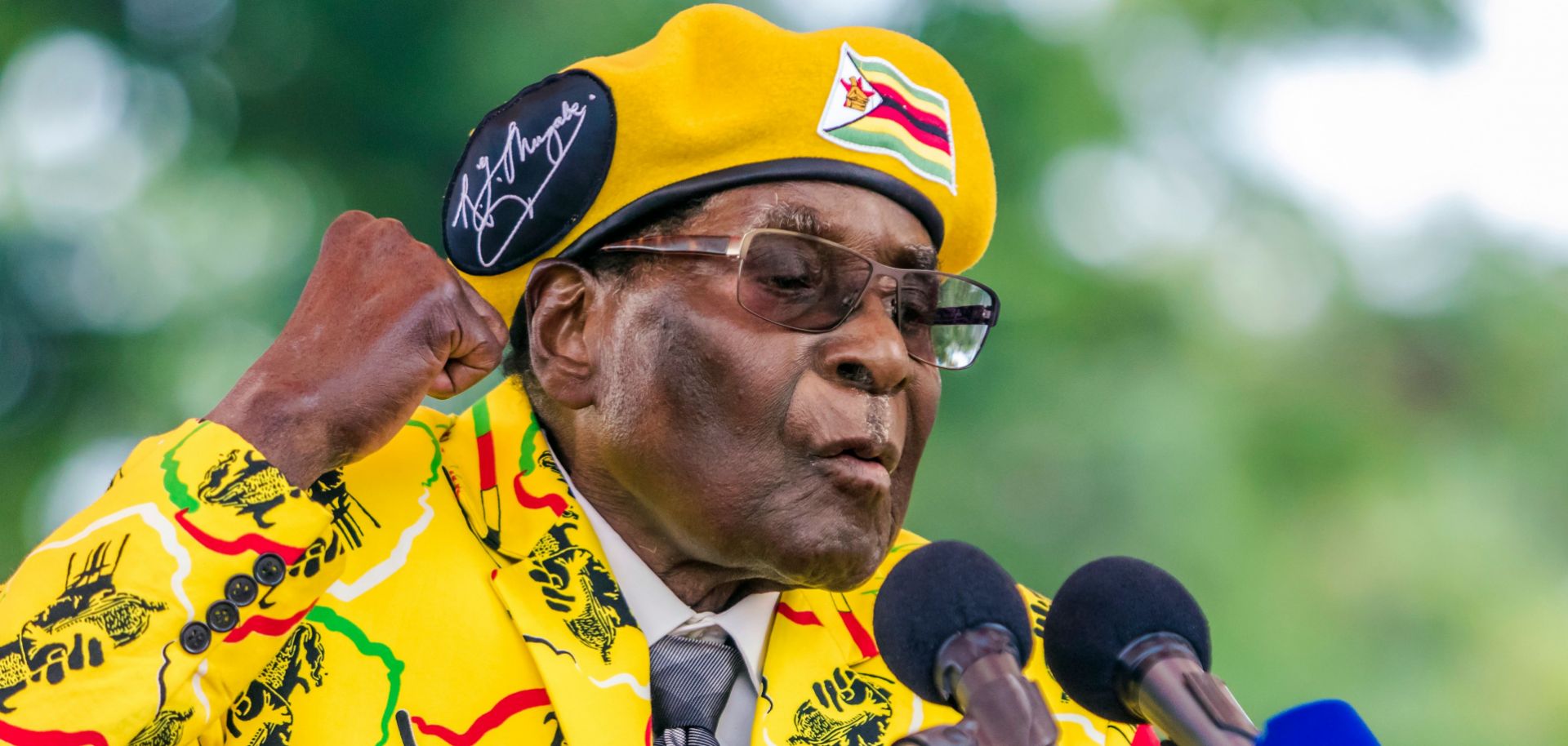ASSESSMENTS
Mugabe Roils Zimbabwe's Succession Waters
Nov 13, 2017 | 09:00 GMT

Zimbabwean President Robert Mugabe addresses supporters on Nov. 8, two days after firing his vice president, Emmerson Mnangagwa. Mugabe's decision changes the trajectory of Zimbabwe's political transition.
(JEKESAI NJIKIZANA/AFP/Getty Images)
Highlights
- Zimbabwean President Robert Mugabe's dismissal of Vice President Emmerson Mnangagwa fits his strategy of pitting would-be successors against each other and expelling those he deems too ambitious.
- While Mugabe may consider elevating his wife to vice president, liberation-era party politics may dictate that his successor not emerge from his family.
- Despite Mnangagwa's alleged support from within Zimbabwe's security services, any attempt at a palace coup d'etat would be extremely difficult to execute and would likely fail.
Subscribe Now
SubscribeAlready have an account?
